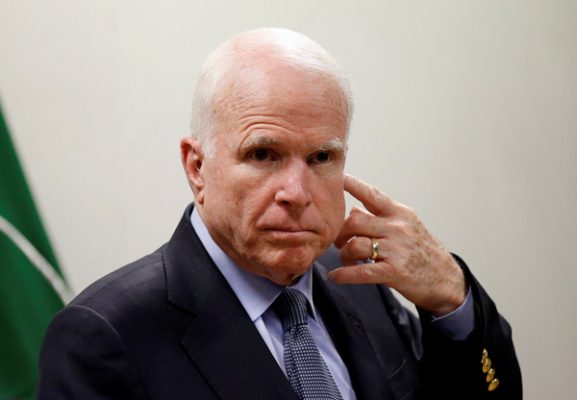
WASHINGTON – Republicans expressed increasing pessimism on Sunday about the prospects for the healthcare bill in the US Senate aimed at rolling back Obamacare as lawmakers prepared to return from a week-long recess.
One prominent Republican lawmaker, US Senator John McCain, said he thought the Republican bill would probably fail.
“My view is that it’s probably going to be dead,” McCain, said on the CBS program “Face the Nation”, adding that Republicans, who narrowly control the chamber, would likely need to work with Democrats on a healthcare bill.
US President Donald Trump took to Twitter on Sunday to put pressure on Republicans to stay the course.
“For years, even as a ‘civilian’, I listened as Republicans pushed the Repeal and Replace of ObamaCare. Now they finally have their chance!” he tweeted.
The Senate bill, which faces unified Democratic opposition, has been further imperiled during the recess, when Republican senators have had to return to their states and face constituents strongly opposed to the measure. Senators return to Washington on Monday.
The Senate bill keeps intact much of the 2010 Affordable Care Act, former Democratic President Barack Obama’s signature legislation, popularly known as Obamacare, but strips away most of its funding.
It repeals most Obamacare taxes, overhauls the law’s tax credits and ends its Medicaid expansion. It also goes beyond repealing Obamacare by cutting funding for the Medicaid program for the poor and disabled beginning in 2025.
At least 10 Republican senators have opposed the bill in its current form, but many more have criticized the legislation or said they are undecided. Republican Senator Bill Cassidy said on Sunday the draft bill was undergoing a “serious rewrite.”
“Clearly, the draft plan is dead,” he said on Fox News. “Is the serious rewrite plan dead? I don’t know. I’ve not seen the serious rewrite plan.”
Critics have derided the bill as a giveaway to wealthy Americans who would see some tax increases rolled back. Opponents also warn that the legislation would cause millions of poor and sick Americans to lose healthcare coverage.
The nonpartisan Congressional Budget Office, which assesses the impact of legislation, estimated 22 million people would lose health insurance over the next decade under the Senate bill. In a separate report, it found the proposal would cut government spending on Medicaid by 35 percent come 2036.


